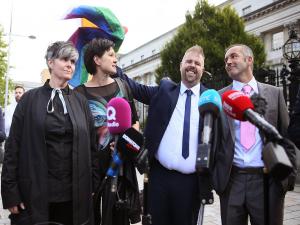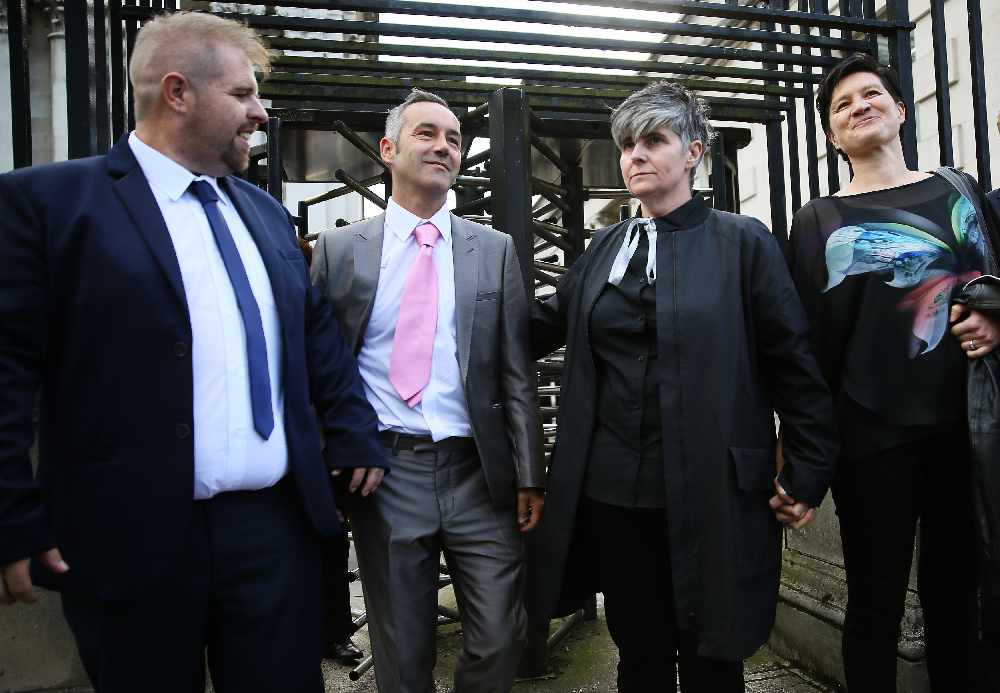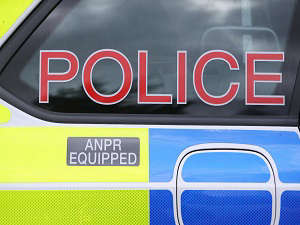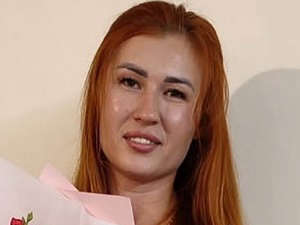
By David Young, Press Association
A judge who dismissed two landmark challenges against Northern Ireland's same sex marriage ban has made clear it is for politicians, not the courts, to change the law.
Mr Justice O'Hara rejected both cases on the grounds that while European law allows for governments to introduce gay marriage, it does not compel them to do so.
He said the rights of the three couples who took the two separate cases had therefore not been violated.
The judge said he understood why gay men and lesbians felt frustrated about the prohibition, especially given the fact a majority of Stormont Assembly members supported a law change at the last vote, but he insisted his job was to interpret the law as it stood, not decide social policy.
The judgments came amid a long-running political dispute on the ban. A majority of MLAs backed a law change the last time the issue came to the floor of Stormont, but the socially conservative Democratic Unionists triggered a contentious voting mechanism to effectively block the measure.
Powersharing has since collapsed and the gay marriage issue is one of the sticking points preventing its restoration return, with Sinn Fein demanding the DUP stop standing in the way of a change.
The DUP insists it is protecting the "traditional" definition of marriage.
Delivering judgment at Belfast High Court, Mr Justice O'Hara said: "It is not at all difficult to understand how gay men and lesbians who have suffered discrimination, rejection and exclusion feel so strongly about the maintenance in Northern Ireland of the barrier to same sex marriage.
"However, the judgment which I have to reach is not based on social policy but on the law."
The judge heard the two cases together due to the similarities of the legal arguments.
Ciarán Moynagh a solicitor for the couple from outside No who want marriage recognised here reads a statement on #marriageequaility ruling pic.twitter.com/YG1hFjAfNH
— David Hunter (@davidhunter7) August 17, 2017
The first challenge - known as Petition X due an anonymity order - involved two men who married in London in 2014 and were attempting to get their union recognised in Northern Ireland.
Their marriage was changed to a civil partnership in law when they moved to Northern Ireland.
In the second case, two couples in civil partnerships - Grainne Close and Shannon Sickles and Chris and Henry Flanagan-Kane - argued the same sex marriage prohibition breaches their human rights.

IMAGE: Grainne Close and Shannon Sickles and Chris and Henry Flanagan-Kane emerge from Belfast High Court
Both couples were, respectively, the first and second in the UK to enter into a civil partnership after Northern Ireland became the first part of the UK to make that option available in December 2005.
Outside court, Ms Close said she was "devastated".
"For us, this is a personal matter," she said.
"We have families and our children are being treated differently because of today's result."
Her partner Ms Sickles vowed to appeal against the judgment and urged supporters to contribute to a fighting fund to sustain the legal campaign.
"This is a long term, many years ahead appeal process to bring human rights to all citizens in Northern Ireland," she said.
.@CaralNiChuilin says judgement means @sinnfeinireland can't enter Govt until @duponline agree to Equality law @ElishaMcC_SF @ChrisHazzardSF pic.twitter.com/06bXlHzCyr
— Q Radio News (@qnewsdesk) August 17, 2017
Asked for his reaction, Chris Flanagan-Kane unfurled a rainbow flag from his pocket and vowed to challenge the outcome.
"You know what - we are here for the long haul," he said.
The couple in the X petition case issued a statement expressing their disappointment.
"What it shows is that more work needs to be done to explain a truth that, to us, is self-evident - the love two men or two women share is never a threat to society, in fact the world could do with a little more love today," they said.
"Today we are calling on the mums, dads, siblings and friends of LGBT+ people to no longer remain on the side lines. Speak, write or tweet to our political leaders reminding them that the majority of people in Northern Ireland support same sex marriage.
"Our fight to have our love recognised continues and we will discuss our options with our legal team."


 Man may require facial reconstructive surgery following assault in Omagh
Man may require facial reconstructive surgery following assault in Omagh
 Police seize ‘significant quantity’ of drugs following chase
Police seize ‘significant quantity’ of drugs following chase
 Woman dies in hospital after road crash in Co Fermanagh
Woman dies in hospital after road crash in Co Fermanagh
 Police name man found dead in Bangor
Police name man found dead in Bangor
 Education Authority boss hits out at criticisms of public services
Education Authority boss hits out at criticisms of public services